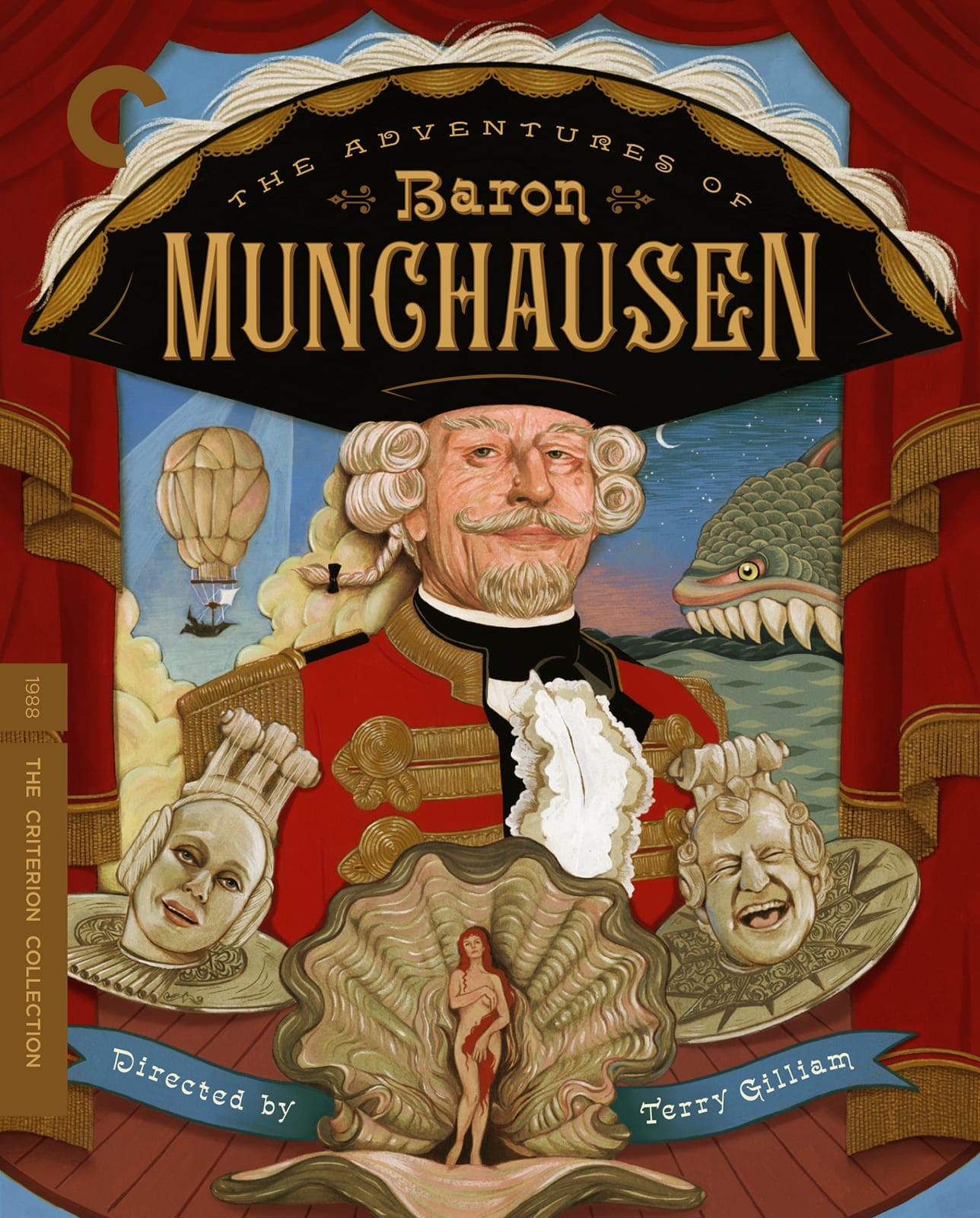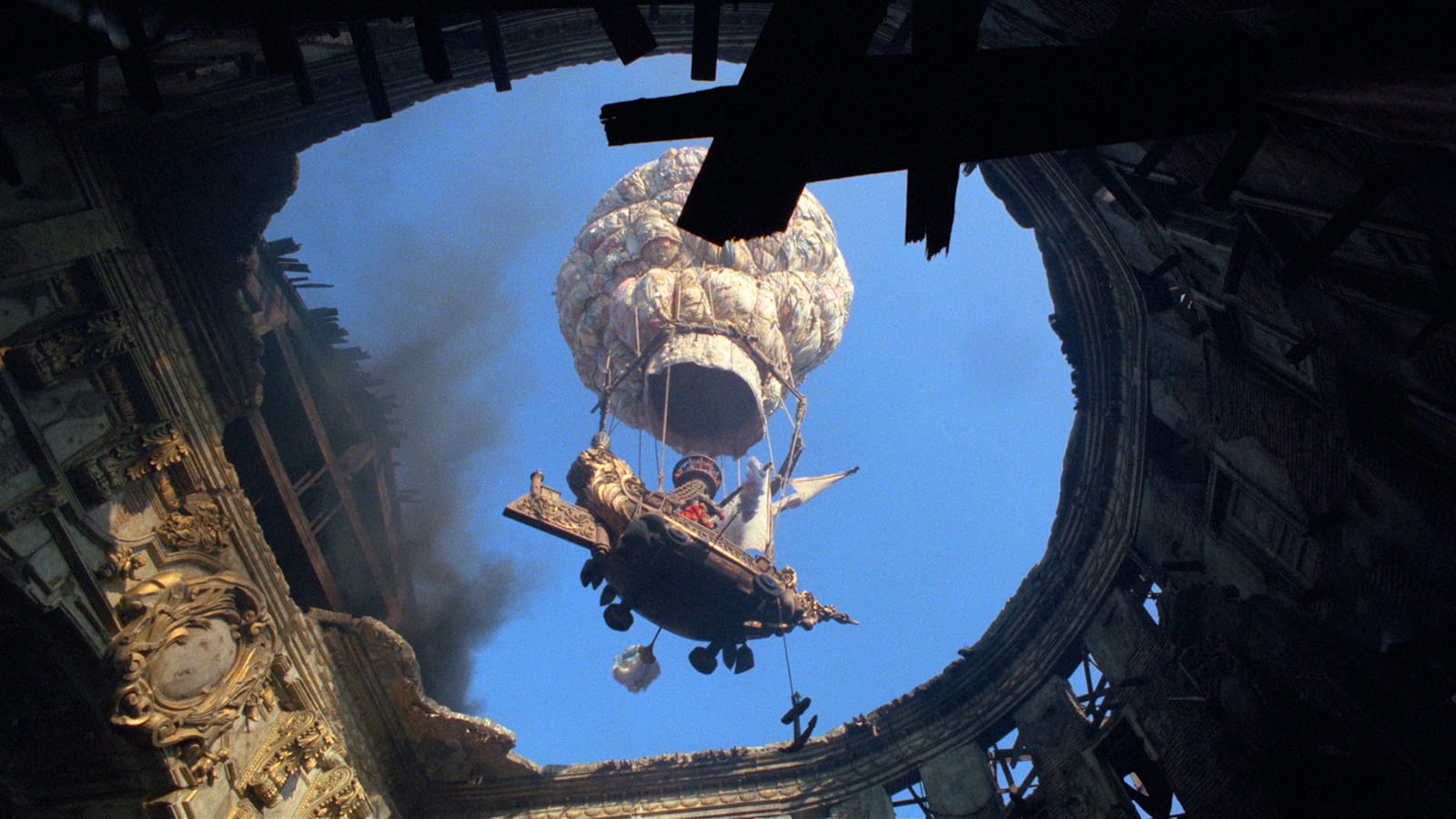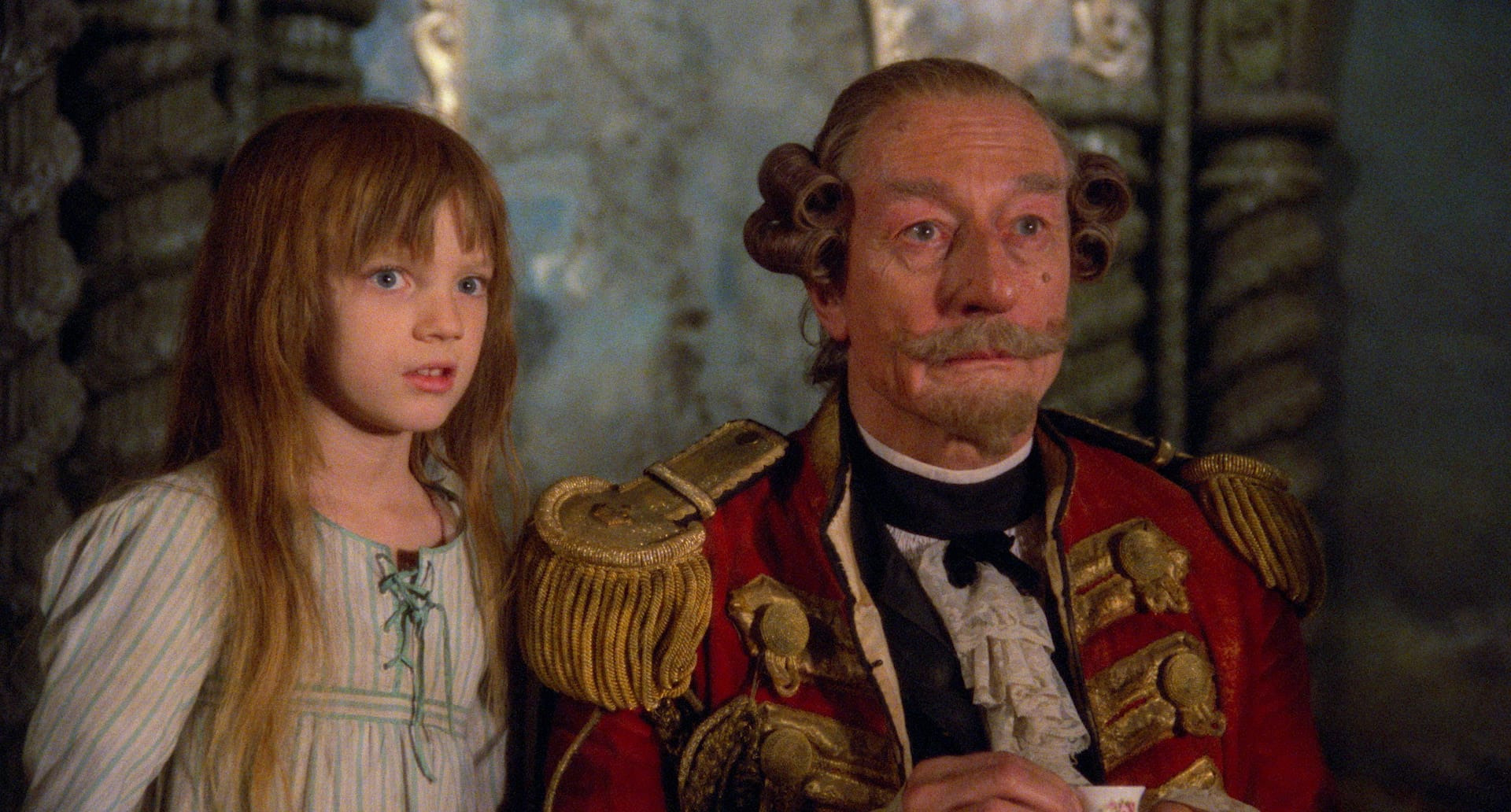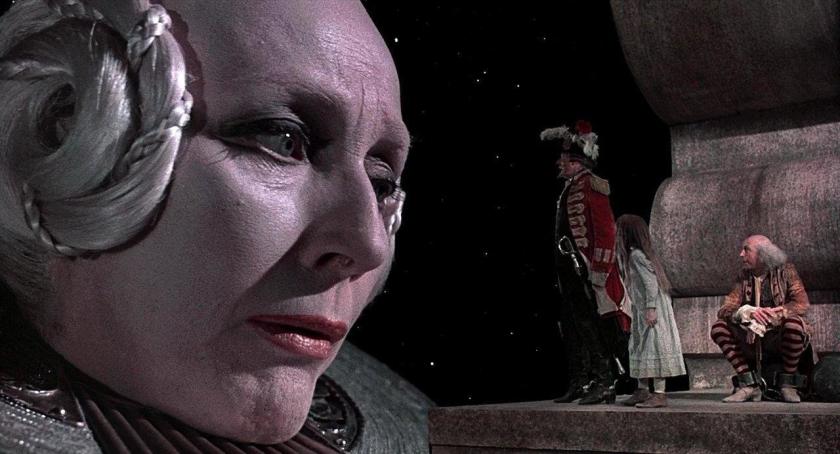“He won’t get far on hot air and fantasy,” Jonathan Pryce’s cruel bureaucrat huffs, as Baron Munchausen (John Neville) bests besieged city walls in a balloon sewn from a half-ton of knickers. “I hope this movie expands people’s ideas of what is possible,” Terry Gilliam countered of this symptomatic creation, based on the absurdly tall tales of the titular, fictional 18th century nobleman.
Though forged from a chaotic shoot, The Adventures of Baron Munchausen (1988) isn’t the folly of reputation, but one of Gilliam’s most finely wrought fantasies, embodying the power of imagination and dreams over reality and death.
 Opening Pythonesquely in “the Age of Reason – Wednesday”, we find a threadbare theatrical troupe depicting the Baron’s yarns in a Bruegelesque, war-torn city, only for the decrepit, real Munchausen to indignantly stop the show. Buoyed by the faith of 9-year-old Sally (Sarah Polley), he is soon back riding cannonballs, nosing his balloon’s carriage through the clouds to the King of the Moon (a rapid-fire Robin Williams), dancing with Venus (Uma Thurman) to the fury of a nuclear-powered, Northern Vulcan (Oliver Reed), being swallowed by a fish, and reuniting his old super-powered retainers, including Eric Idle’s speedster.
Opening Pythonesquely in “the Age of Reason – Wednesday”, we find a threadbare theatrical troupe depicting the Baron’s yarns in a Bruegelesque, war-torn city, only for the decrepit, real Munchausen to indignantly stop the show. Buoyed by the faith of 9-year-old Sally (Sarah Polley), he is soon back riding cannonballs, nosing his balloon’s carriage through the clouds to the King of the Moon (a rapid-fire Robin Williams), dancing with Venus (Uma Thurman) to the fury of a nuclear-powered, Northern Vulcan (Oliver Reed), being swallowed by a fish, and reuniting his old super-powered retainers, including Eric Idle’s speedster.
Fellini’s production designer Dante Ferretti and latter-day cinematographer Giuseppe Rotunno led the mostly Italian shoot’s crew, and the look is richly baroque, sometimes artificially pictorial, and uses the $35 million budget to fully realise an 18th century fantasy in a pre-CGI marvel of rendering, painting and modelling. There is limpid beauty, as reflections of stars in water become ripples in a lunar landscape. Our tottering fantasist meanwhile navigates narrative realities, with Sally’s child’s credulity and earnest outrage at war fuelling his defiant flight; her wide-eyed perspective earths ours. “Quite often his films lack emotion, he doesn’t trust himself to go with emotion,” Idle said of Gilliam’s movingly romantic stand against brutish reality. “It was clearly for his daughter that he wanted to make it.”
 The result is a great adventure film, fit to be a childhood staple but fated to be a studio-buried flop. Made a scapegoat and pariah, Gilliam could never again implement his grandest, purest visions. “He sees himself as the lone Don Quixote, the lone Munchausen,” Idle said, suggesting innate self-destruction. “I actually felt like Munchausen at the end,” Gilliam conceded. “The system had finally got me…I felt like Icarus.”
The result is a great adventure film, fit to be a childhood staple but fated to be a studio-buried flop. Made a scapegoat and pariah, Gilliam could never again implement his grandest, purest visions. “He sees himself as the lone Don Quixote, the lone Munchausen,” Idle said, suggesting innate self-destruction. “I actually felt like Munchausen at the end,” Gilliam conceded. “The system had finally got me…I felt like Icarus.”
Criterion’s two-disc, 4K Ultra HD Blu-ray includes a doc on Munchausen’s history, from Rudolf Erich Raspe’s phenomenally popular 1785 book to Dore’s illustrative incarnating of its “chimeras”, and films such as Josef von Báky’s Goebbels-commissioned super-production Münchhausen (1943), released into a world of lies in which only its inveterate fabulist hero tells the truth.
 A 1991 South Bank Show recounts Gilliam’s “Huck Finn” childhood, tutelage by EC/Mad comics genius Harvey Kurtzman, and Munchausen’s overwhelming production. Constantine Nasr’s The Madness and Misadventures of Munchausen (2008) tells the awful story. Sarah Polley, pictured above with Neville, so excellent at the start of her fine career as an actress (The Sweet Hereafter) and director (Women Talking), was “afraid almost every day”, and the usually chipper Idle’s face drops: “Even to recall it is a bit of a nightmare.” A perfect storm of slashed budgets, sacked studio heads, a producer given to Napoleonic fancies, Roman financial “corruption” and crews beyond Gilliam’s control left him “exhausted”, till he “allowed myself to let go”. Crucially, as he says, “I don’t think [the film] shows the difficulty or the pain or the nightmare.” This release peels back Gilliam’s reputation for anarchy to find a neglected classic. No film now would be so physically arduous in the service of such shimmering dreams.
A 1991 South Bank Show recounts Gilliam’s “Huck Finn” childhood, tutelage by EC/Mad comics genius Harvey Kurtzman, and Munchausen’s overwhelming production. Constantine Nasr’s The Madness and Misadventures of Munchausen (2008) tells the awful story. Sarah Polley, pictured above with Neville, so excellent at the start of her fine career as an actress (The Sweet Hereafter) and director (Women Talking), was “afraid almost every day”, and the usually chipper Idle’s face drops: “Even to recall it is a bit of a nightmare.” A perfect storm of slashed budgets, sacked studio heads, a producer given to Napoleonic fancies, Roman financial “corruption” and crews beyond Gilliam’s control left him “exhausted”, till he “allowed myself to let go”. Crucially, as he says, “I don’t think [the film] shows the difficulty or the pain or the nightmare.” This release peels back Gilliam’s reputation for anarchy to find a neglected classic. No film now would be so physically arduous in the service of such shimmering dreams.















Add comment